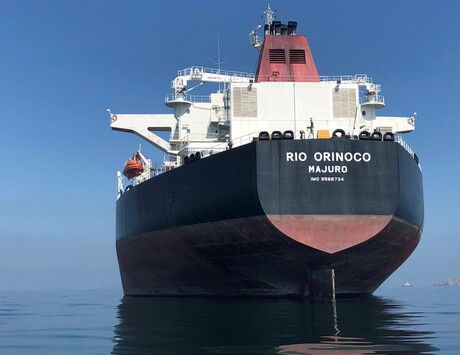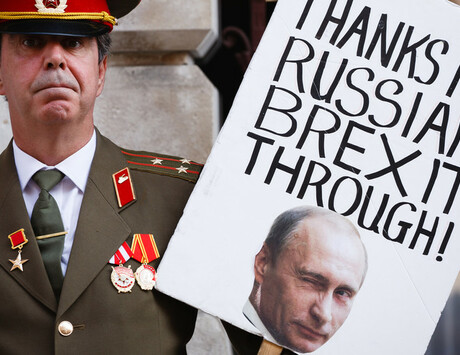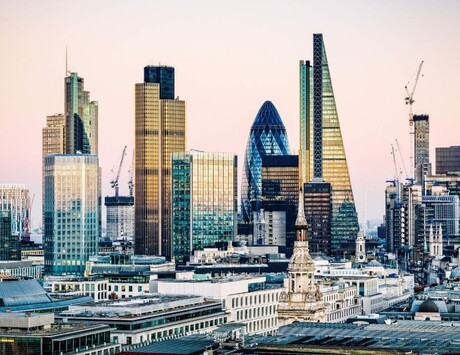Russian bankers’ ambiguous fates – with the same ending
10/04/2012 / Alexei Mukhin, President of the Center for Political Information
The shots fired on London’s respectable Byng Street on 20 March brought German Gorbuntsov, a banker with a vague past, to the front pages of the world’s leading newspapers. The scandal around the extradition to Lithuania of another escapee to London, former Snoras bank owner Vladimir Antonov, went unnoticed.
But the two men appear to be so closely connected that their cases might as well be investigated as a single “Russian bank mafia” case.
There are many guesses about who ordered the hit, which is not surprising – the 45-year-old banker has a very stormy past. Based on media reports, he was convicted of robbery in the 1980s. In the 1990s, he went into business, becoming a co-founder of about 40 companies. It was at that time that he met banker Aleksei Frenkel, who was later found guilty of masterminding the murder of Andrei Kozlov, first deputy chairman of the Central Bank.
The former robber embarked on a financial career in 2002, when he bought a stake in Interus Bank and became a board member, but not for long. In 2005, the Central Bank revoked Interus Bank’s license for “participation in illegal activities including money laundering,” as Interior Ministry officials put it. However, by late 2006, he had acquired a 41% stake in Incredbank, which was also part of the Frenkel empire. That same year, he met the Antonovs, father and son, and bought their controlling interests in Interprogress Bank and Conversbank-Moscow (formerly Akademkhimbank).
As it turned out, the bankers had much in common. For instance, it turned out that Antonov senior and German Gorbuntsov had both at different times sponsored FC Terek Grozny, promising the leadership of the Chechen Republic substantial investments and then failing to deliver. And the two Antonovs, just like Gorbuntsov, had figured in several criminal scandals. For example, Sergei Ponomarev, chairman of the board of Akademkhimbank, which they owned at that time, was murdered in 2000, and in 2002, the Russian Interior Ministry’s Investigative Committee opened a money laundering case, after which Central Bank Deputy Chairman Andrei Kozlov refused to make Akademkhimbank part of the deposit insurance system.
When put up for sale, Conversbank-Moscow appeared to hold about $1 billion in the accounts of one state monopoly. However, when its directors tried to retrieve their billion in 2008 (the holder had already been renamed Stolichny Torgovy Bank), the bank experienced difficulties making the payment. Gorbuntsov could not say where the money was. At the same time, his other assets, including the building company Flat & Co, the Sokolniki sports facility in Moscow and Spartak hockey club, seemed to have more than enough. In 2008, Moldova’s Universalbank became one of Gorbuntsov’s latest acquisitions – Moskovskaya Pravda reported that the bank was used to withdraw a state monopoly’s funds and further legalise this money. Alexander Antonov was also involved in that scandal: in 2009, he narrowly escaped an assassination attempt – the banker was hit by five bullets, but survived and fled to England.
Meanwhile, German Gorbuntsov, who already faced criminal charges in Russia, gained Moldovan citizenship. He went into hiding in Moldova and then moved to London. In 2011, the court seized Universalbank’s stocks to settle a $5 billion claim. In February 2012, Moldovan authorities placed Gorbuntsov on the international wanted list. Gorbuntsov made no secret of the fact that he intended to seek political asylum in Britain. Shortly before the assassination attempt, Gorbuntsov sent a letter to the Russian Investigative Committee offering his version of the attack on Antonov in 2009. Gorbuntsov explained that he was trying to recover $106 million that the Antonovs owed him, and that the Chechen shot callers who were helping him simply “overdid it.”
The Antonovs felt uneasy in London, their Lithuanian Snoras assets having been nationalized and then gone bankrupt. Their Latvia-based Krajbanka suffered the same fate: local regulators discovered cash shortages of $1.42 billion and 210 million euros in Snoras and Latvijas Krajbanka, respectively, and charged Vladimir Antonov and his partner Raimondas Baranauskas with embezzlement. The court decision on their extradition was postponed from March 22 to June. It is possible that the Byng Street shooting played a role in the postponement.
Investigators will sooner or later find out who exactly wanted to kill the banker. German Gorbuntsov certainly has plenty of enemies. British detectives will have to go through the long list of his disgruntled creditors, deceived partners and scammed shareholders. So far the investigation has not uncovered any political motives. Nonetheless, both Vladimir Antonov and German Gorbuntsov will sooner or later ask for asylum in the “country of runaway oligarchs.” The logic here is simple: only a request for political asylum will protect them from legal prosecution and shootouts. In addition, it is much easier to be granted political asylum if you are part of assassination attempt and conspiracy cases.
Translated article from "Nezavisimaya Gazeta".



